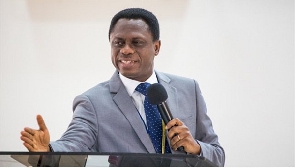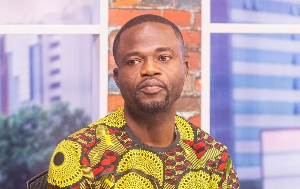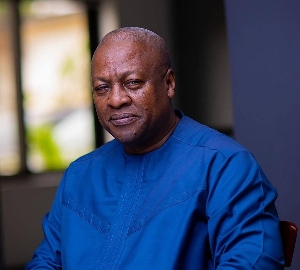Opinions of Wednesday, 28 June 2023
Columnist: Emmanuel Kwame Appiah
Who is actually involved in vote buying in Ghana
Unfortunately, since 1992, vote-buying has permeated various types of elections in Ghana, including campus elections, general elections, local government elections, and by-elections. It is of utmost importance and should be a matter of concern for all of us to identify the root causes and implement effective measures to put an end to this widespread phenomenon.
In the recent Assin North by-election on June 27, 2023, vote-buying was strongly condemned by CODEO. The NPP and NDC traded intense allegations, with Cassiel Ato Forson denying involvement but accusing the NPP of offering incentives. John Boadu, the former General Secretary of the NPP, accused the NDC of diversionary tactics.
Vote-buying breeds entrenched corruption. When politicians evade consequences for purchasing votes, it encourages others, perpetuating corruption and undermining future election fairness.
Breaking this cycle is vital to ensure equal weight for every vote. Vote-buying has multiple negative consequences for Ghana's electoral process. Firstly, it leads to unfair advantages, as certain individuals gain disproportionate power and influence due to monetary involvement, undermining equality and fairness.
Additionally, it distorts the genuine expression of voters' preferences, as people may be swayed by monetary incentives instead of voting based on their authentic beliefs and convictions. As a result, the true voice of the people may not be accurately represented, leading to election results that do not reflect their genuine desires.
Furthermore, vote-buying fortifies the presence of corruption within the political system. When politicians partake in this practice, they exhibit dishonesty and set a negative example for the country.
This fosters a culture of deceit and unfairness, eroding trust in the government and its leaders. Vote-buying disproportionately affects vulnerable and marginalized individuals. Those facing financial disadvantages may feel compelled to sell their votes due to economic hardships. This perpetuates a
cycle of poverty and hinders their active participation in shaping their own future.
When votes are bought, elected leaders become less accountable to the people they represent. Instead of prioritizing the well-being of their constituents, they may focus on recouping the money spent on buying votes. This disregard for the needs and concerns of the people undermines the essence of democratic governance.
Furthermore, this practice undermines fair competition in elections. In a truly equitable electoral process, candidates should compete based on their ideas, policies, and qualifications. However, when some resort to buying votes, the election becomes a contest of financial resources rather than merit.
Public trust in the government and the political system as a whole also weakens. When citizens witness such practices, they may question the legitimacy and fairness of the electoral process. This skepticism can lead to a decline in voter turnout, weakening the democratic foundation of the country.
Moreover, leaders who rely on vote-buying erode public trust and raise doubts about their competence and suitability for their roles, hindering effective governance and sound decision-making.
To combat vote-buying, strong and strictly enforced laws with severe penalties should be enacted to discourage such practices.
Independent organizations should be entrusted with the task of monitoring elections and thoroughly investigating any reports of vote-buying. These organizations can contribute significantly to upholding the fairness and integrity of the electoral process.
It is crucial to educate voters about their rights and the importance of making informed decisions. By providing citizens with knowledge about candidates' qualifications and policies, they can make choices based on merit rather than monetary incentives.
Political leaders have a vital role in combating vote-buying. They should act as ethical role models, condemning any form of electoral malpractice. By upholding high moral standards, they can inspire others to do the same.
Individuals who witness or are approached with offers of vote-buying should report such incidents to the appropriate authorities. Whistleblower protection laws can be implemented to ensure the safety and security of those who come forward with valuable information.
In conclusion, by addressing the underlying desperation that drives individuals to sell their votes, we can make significant progress. Let us collaborate to ensure that every citizen's vote is valued and that our democracy thrives on fairness and accountability, safeguarding the integrity of Ghana's electoral
process.













